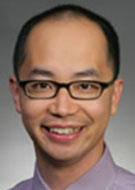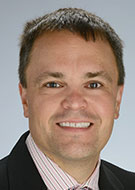Financial Planning for Radiologists
From first paycheck to financial independence: strategies for managing money, tackling debt and long-range planning



When it comes to financial planning, some people read books and manage their own investments, while others hire a professional money manager. Some just put their heads in the sand and hope for the best.
If the idea of managing your money and planning for the future inspires dread, overwhelm or paralysis, there's good news. Several radiologists have dedicated themselves to making financial education more accessible and understandable for their fellow colleagues and trainees.
Sherwin S. Chan, MD, PhD, and Christopher M. Walker, MD, developed a course on money management for RSNA EdCentral. It’s part of the platform’s non-interpretative curriculum, and it covers the basics of personal finance, from investments to retirement planning.
"I think finance stuff can be intimidating, so many people outsource it, which is fine if you can find a good person to handle it for you, but physicians don't get training on how to do that," said Dr. Chan, vice chair of radiology at Children's Mercy Hospital in Kansas City, MO. "If people knew the basics and were thoughtful and intentional with their financial decisions, that would solve many issues."
Dr. Walker, the Glen and Karen Cox endowed professor of radiology and vice chair of faculty development at the University of Kansas Health System, said radiologists should be knowledgeable enough about personal finance to safeguard their own interests. Unfortunately, there are a lot of people masquerading as financial planners who are, in reality, selling products that may not be in a client’s best interest.
"No one is going to care about your money more than you," he said. "You need to be able to distinguish a salesman from a true financial advisor.""Unlike careers that have gradual increases, medical careers have a big step up which presents big financial decisions quickly that will affect what you're able to do later in life."
— SHERWIN S. CHAN, MD, PHD
Your First Financial Steps
Like most people, radiologists must manage their money without any formal training in financial matters. Making matters worse, many people consider money a taboo topic. To help normalize conversations about money, Dr. Chan said he's transparent when discussing his net worth and investment strategies with trainees.
"Medicine is unique in that you rack up a lot of debt, get a fairly low-level salary while you're training, and then you have this huge bump," Dr. Chan said. "Unlike careers that have gradual increases, medical careers have a big step up which presents big financial decisions quickly that will affect what you're able to do later in life."
Dr. Walker advises early-career radiologists to grow into their larger salaries gradually. "If you don't jump into that income and instead take a few years to pay off your student loans, you can make your later years much, much easier," he said.
Recommended steps for graduating residents include establishing a student loan repayment plan which includes pursuing loan forgiveness programs, purchasing term life insurance (not whole life or universal life) and occupation-specific disability insurance (for physicians with dependents), engaging a lawyer to review employment contracts, and creating a financial plan that is regularly reviewed and updated.
The Bogleheads Forum and the White Coat Investor are two invaluable resources that offer step-by-step guides for financial planning, blog posts and comprehensive Q&A forums. White Coat Investor also lists vetted financial professionals who specialize in serving physicians.
"There are great partnerships to be had," Dr. Chan said. "It's important to shop fiduciaries and make sure their fees are commensurate with what they're doing for you."
A qualified financial professional can help determine how much you need to retire, assess your risk tolerance for investments and develop a drawdown strategy for retirement. "These questions can be complex, almost like a foreign language," Dr. Walker said. "It's fine to pay someone to help you answer these complex financial questions."
Building Wealth as a Young Radiologist
Cindy S. Lee, MD, joined Drs. Walker and Chan for a standing-room-only session on financial planning at RSNA 2024 and lectured on becoming financially independent—a goal she achieved by the age of 43. She is the founder and president of Intelligent CJ Capital, LLC, and is known nationally for teaching doctors about financial planning.
"Being financially independent gives you more options, and it's also a great way to address burnout and work-life balance," said Dr. Lee, chief of breast imaging, vice chair of clinical research and faculty affairs at the Stony Brook Renaissance School of Medicine in New York. "I wanted to be debt-free and work because I enjoy it."
Dr. Lee offers a five-step plan with 12 priorities for achieving financial independence, which can be accomplished by saving approximately 25 times your annual spending. For an individual who spends $120,000 per year, including taxes, that magic number would be around $3 million in savings.
When it comes to budgeting, Dr. Lee espouses the 50/30/20 rule, in which 50% of your income meets your daily living needs, such as your mortgage, car payment, utilities and groceries; 30% is spent on wants, including vacations, cars and dining out and at least 20% is placed into savings.
Although she has studied finance and investment strategies extensively, she said that managing your investment portfolio doesn't have to be time-intensive—it can be low-cost and straightforward by investing in index funds or using a robo-advisor, which automatically rebalances your portfolio according to your investment goals. "As radiologists, we don't have time to waste, so we need to be efficient," Dr. Lee said.
She also recommends front-loading, automating savings and not leaving money on the table by maximizing all available retirement benefits. "Time is your best friend. Let the money grow with compound interest," she said. "The earlier you save, the less you have to save."
Most importantly, remember that money should be treated as a means, not an end. "It's not about trying to die with the most money," Dr. Walker said. "If there are experiences you can have that will bring you joy, try to do those things."
For More Information
Access the session, “Financial Planning: From Investment to Retirement,” on EdCentral.
Read previous RSNA News stories on careers and professionalism: